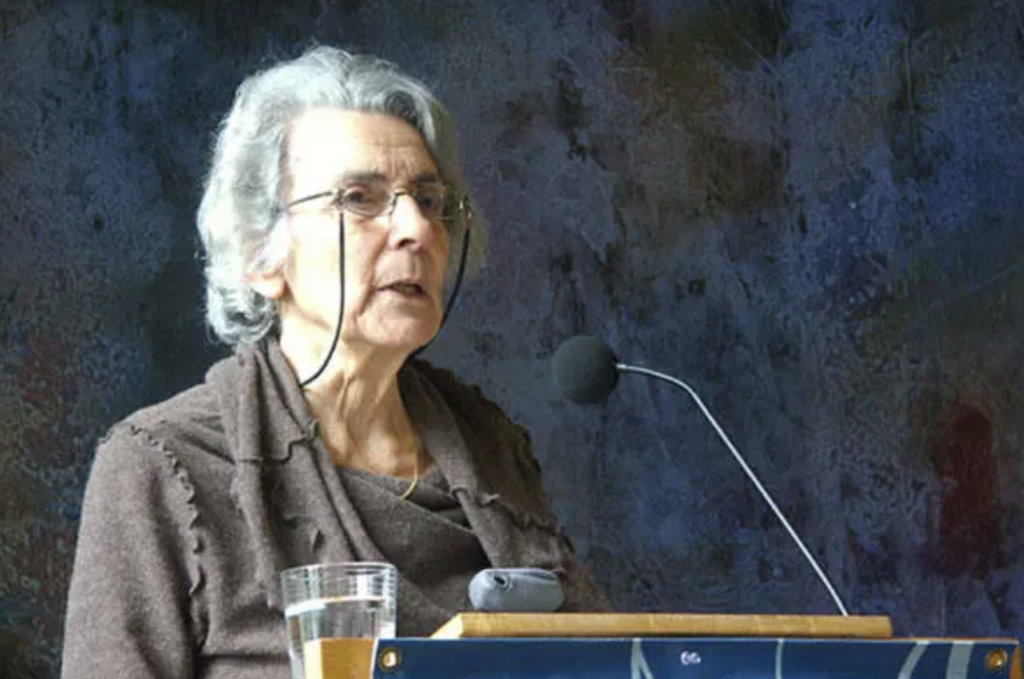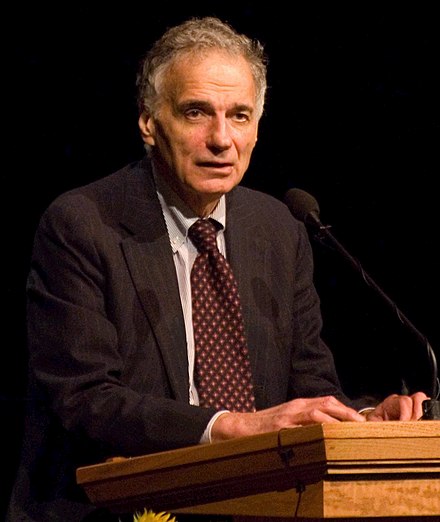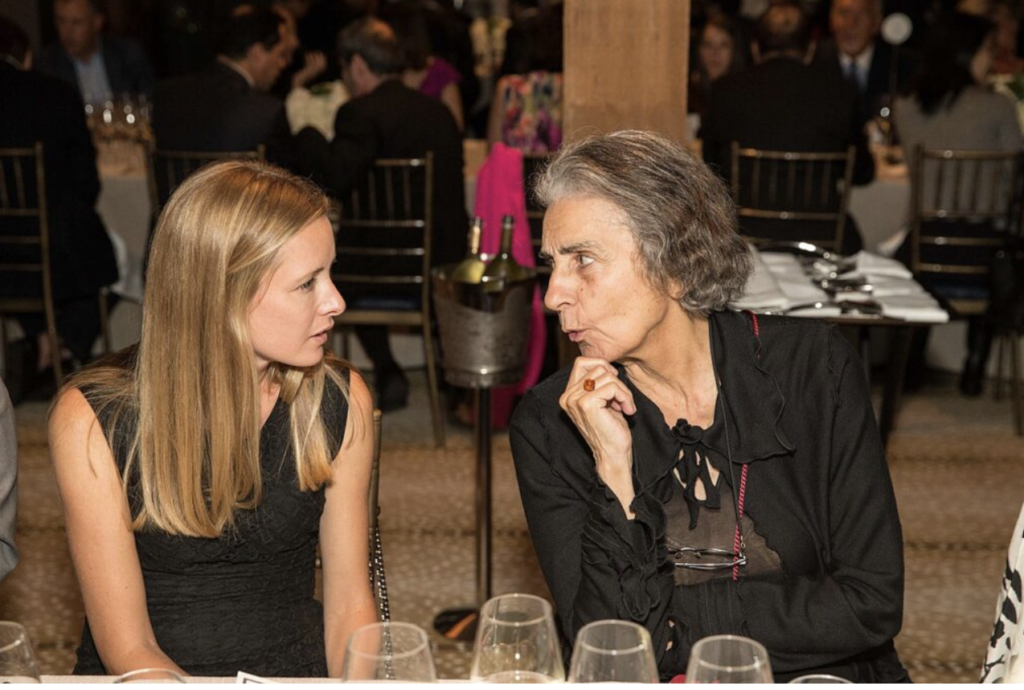Pathbreakers of Arab America—Laura Nader

By: John Mason / Arab America Contributing Writer
This is the thirtieth in Arab America’s series on American pathbreakers of Arab descent. The series includes personalities from entertainment, business, sports, science, academia, journalism, and politics, among other areas. Our thirtieth pathbreaker is Laura Nader, a famed Lebanese American anthropologist, and not quite incidentally, sister of a famed Lebanese American public interest advocate, Ralph Nader. Not only did their father emigrate to the U.S. for political reasons, giving all of his children a strong sense of “the other,” but it was her younger brother, Ralph, who first recommended that Laura study anthropology at university. She has since become a champion of justice for oppressed peoples around the world.
Laura Nader—a leader in the endeavor of Anthropology to make the world safe for human differences
Laura Nader was born on February 16, 1930, in Winsted, Connecticut to Nathra and Rose. Her father, Nathra, owned a restaurant store in Connecticut, which, according to Wikipedia biographies of Arab Americans, served as a place for many political discussions. In the same mold as the father, Laura’s mother, Rose, also an immigrant from Lebanon, was a schoolteacher who had a strong interest in justice and would express her views in letters to the press. Her siblings all had public service careers. Laura’s family served as positive role models for her interest in people and cultures other than her own and her concern for the oppression of others who are different.
Laura’s interest in people who were different began with her undergraduate studies in Latin America at Wells College in Aurora, New York in 1952. Going further in her studies, she studied for her Ph.D. in anthropology at Radcliffe College, Harvard University. Laura’s doctoral fieldwork was completed in a Zapotec village in Oaxaca, Mexico, where she focused on conflict resolution among village parties. Later, she did fieldwork in South Lebanon.
Since 1960, she has been a Professor of Anthropology at the University of California, Berkeley, and is “the first woman to receive a tenure-track position in the department.” Laura’s areas of academic interest include comparative ethnography of law and dispute resolution; conflict; comparative family organization; anthropology of professional mindsets; and ethnology of the Middle East, Mexico, Latin America, and the United States.
One of Nader’s intellectual interests is labeled “harmony ideology.” This is, per Wikipedia, “an ideology centered around the belief that conflict is necessarily bad or dysfunctional and that a healthy society is one that achieves harmony between people and minimizes conflict and confrontation.” Laura has argued extensively in her book “Harmony Ideology” that this ideology was “spread amongst colonized peoples around the world by missionaries prior to, and facilitating their military colonization.” She said that the Zapotec whom she studied used the converse of harmony ideology to keep the Mexican government out of its business, allowing the community to remain relatively autonomous.

In concert with Nader’s interest in law and social control, she pursued a related concern for which she is perhaps best known in anthropology circles. That is her focus on who controls the culture of power, the culture of affluence, and, related, the culture of poverty. This resulted in her controversial article, “Up the anthropologist–Perspectives gained from studying up.” In it she urged anthropologists to study for example, the colonizers, not the colonized, the culture of affluence, not the culture of poverty. Laura became known as the modern, moral conscience of American anthropology.
True to her conscience and expertise, Nader, a lifelong critic of Israel’s oppression of Palestinians
In April 2015, Nader was invited to pen an editorial for the Journal of the Royal Anthropological Institute. In it, according to “Jewish News,” she accused the Israeli government of its continued occupation of Palestine and its oppression of the Palestinian people. An uproar erupted among Great Britain’s Jewish community, some corners calling for an apology by the Journal for the offense of “blatant antisemitism.” The director of the Institute apologized for the offense.
True to her principles of supporting the underdog, in the editorial Laura compared the Israel Defense Force with ISIS, suggesting that “the Holocaust was used to justify Jewish extremism. She wrote of the “Jewish jihad, comparing foreign Jews fighting in the IDF with Europeans fighting for ISIS in Iraq and Syria.” In Laura’s defense, an open letter calling for the “end of Israeli occupation and colonization” and the right of return for Palestinians has been signed by almost 1,000 anthropologists from across the world, who urged colleagues to boycott Israel.

In yet another editorial role, since the eruption of the Israel-Hamas war began on October 7, 2023, Nader contributed to a public statement by the group, “Public Anthropologist,” on the situation in Palestine. Signed by dozens of anthropologists from around the world, it begins by stating, “We extend our solidarity to those suffering and grieving the loss of loved ones in both Palestine and Israel. As scholars of humanitarianism, war, displacement, and related fields, we are deeply concerned by the escalation of violence in Palestine. We strongly condemn the ongoing acts of indiscriminate and large-scale violence perpetrated by the Israeli government against the people of Gaza.”
The statement continues, citing several issues, mostly involving acts perpetrated by the Israel Defense Force on the Palestinian people of Gaza, and mostly affecting women and children.
We cite several of these below, more or less verbatim:
• Condemnation of Israel’s deliberate blockade and denial of essential supplies of food, water, fuel, and other necessities to over two million people in Gaza, half of whom are children and two-thirds are displaced. This amounts to collective punishment and is in flagrant violation of international humanitarian law
• Criticism of measures taken in Europe and elsewhere to repress peaceful protests and silence those who have expressed solidarity with Palestinians, including fellow scholars
• Such curtailment of freedom of expression undermines the essence of our role and duty as researchers. It is vitally important that we can participate in free and critical discussions on matters such as violence and war
• Insistence on the scholarly emphasis on the importance of viewing this conflict in its historical and political context, acknowledging the historical inequalities, injustice, and violence brought about by Israel’s longstanding occupation of Palestinian territories and maintenance of an apartheid state. We reiterate the need to consider the roots of the current situation in the actions and inaction of European governments before, during, and after the Second World War
• Necessity to unite against antisemitism and Islamophobia, and to promote the right to freedom, safety, and self-determination for both Palestinians and Israelis
• Call for an immediate ceasefire in Gaza and the release of all hostages, for all parties to respect international law and allow the immediate and uninterrupted passage of critical humanitarian relief for the people of Gaza, and
• Call for a commitment from Israel and all European governments to a peace process that ends the occupation of Palestinian territories
Now in her 90s, Laura Nader has stuck to her principles in displaying her wizened expertise to the solution of problems relevant especially to Arabs worldwide, but to all of us – in the endeavor of anthropology to make the world safe for human differences.
Sources:
–“Laura Nader,” Wikipedia Biographies of Arab Americans, 2023
–“Head of the academic journal apologizes for ‘offense’ in ‘blatantly anti-Semitic’ editorial, Jewish News, 4/28/2015
–“Statement on the situation in Palestine,” Public Anthropologist, 10/26/2023
John Mason, Ph.D., focuses on Arab culture, society, and history, and is the author of LEFT-HANDED IN AN ISLAMIC WORLD: An Anthropologist’s Journey into the Middle East, New Academia Publishing, 2017. He has taught at the University of Libya, Benghazi, Rennselaer Polytechnic Institute in New York, and the American University in Cairo; John served with the United Nations in Tripoli, Libya, and consulted extensively on socioeconomic and political development for USAID and the World Bank in 65 countries.
The views and opinions expressed in this article are those of the author and do not necessarily reflect the position of Arab America.
Check out our Blog here!








